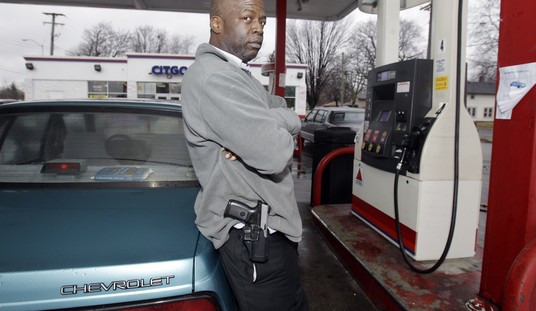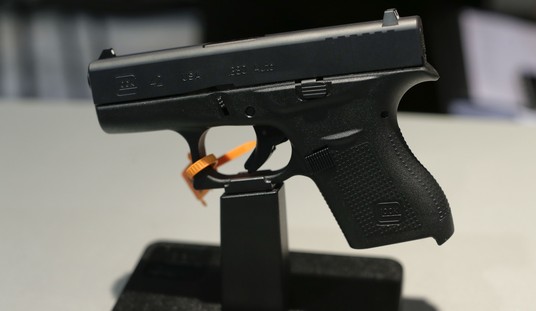The U.S. Supreme Court refused to review a lower court ruling that requires gun owners in San Francisco to keep their guns locked up and bans the sale of hollowpoint ammunition in what can only be viewed as judicial cowardice:
The refusal to review the case of Jackson v. City and County of San Francisco was the latest in a string of such orders, declining to clarify the personal right to have a gun, first established seven years ago and extended nationwide five years ago, but not explained further in the years since. Once again, as is its custom, the Court did not explain why it was choosing to remain on the sidelines.
In the 2008 decision in District of Columbia v. Heller, the Court had ruled that the right created by the Second Amendment included a right to have a gun for one’s own use in self-defense, at least within the home, and with such a weapon in a condition allowing it to be quickly used. That is the right that the Court said applied all across the country, in the 2010 decision in McDonald v. City of Chicago. But McDonald marked the last time the Court had spoken on the amendment’ s reach.
Much of the uncertainty that has spread to courts across the country has involved the core question whether the personal right extends anywhere beyond the home. That has been the issue that the Justices have most often declined to sort out. The San Francisco case, however, sought to bring the Court back inside the home, to determine how far government could go to regulate access to a weapon there.
Under the city-county ordinance at issue, a handgun in the home could be carried on the body of the person, but otherwise had to be stored in a locked container or else disabled with a trigger lock. The right to carry a handgun within the home was restricted to those over the age of eighteen.
Lower federal courts had upheld those restrictions, despite gun-owners’ claims that the ordinance directly contradicted the access that the Court supposedly had assured in the Heller decision. The main rationale for upholding the ordinance was the need to prevent gun-related accidents within the home.
Six San Franciscans who own guns, and want easy access to them in their homes, asked the Supreme Court to strike down the local law. Their plea argued that the lower courts’ rulings were “perhaps the most direct repudiation of this Court’s holding in Heller since the decision was handed down.”
That was the plea that the Court chose to bypass, over a dissent by Justice Clarence Thomas that was joined by Justice Antonin Scalia, the author of the majority opinion in the Heller case. The rulings upholding the San Francisco ordinance are “in serious tension with Heller,” the dissenters argued. The Court should have granted review, they contended, “to reiterate that courts may not engage in . . . judicial assessment as to the severity of the burden imposed on core Second Amendment rights.”
Jackson was very similar to Heller in its overreach, and should have been taken up by the court for review. Unfortunately, SCOTUS had cravenly fled every opportunity to further define the borders of the Second Amendment since McDonald.








Join the conversation as a VIP Member